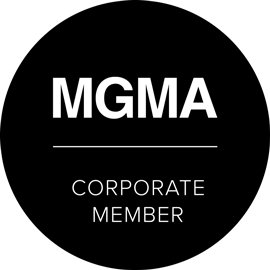The healthcare industry is an around-the-clock effort that never closes. This is because people’s health concerns don’t follow a convenient nine-to-five, Monday-through-Friday schedule. That’s why most medical practices tap the services of a professional medical answering service. They want to be available to their patients 24/7, whenever a need arises, but they must also guard against overextending themselves and burning out.
Medical answering services can take after-hours calls for patients who have a health concern. This can range from needing to cancel an appointment to having severe symptoms that could constitute an emergency. Medical answering services can answer all these calls and respond as appropriate. For some calls they take a message or give out information, and other calls they refer patients to the ER. In between this is contacting an on-call person to provide fast, expert medical advice.
What are some common scenarios that medical practices use to schedule their on-call staff?
On Call for the Week
One frequently used approach is to assign one person to handle all on-call scenarios for the office, for an entire week, such as Monday evening through the next Monday morning. Though this may be intense for the on-call person, usually the facility makes provisions to offset after-hours work with a lighter or adjustable office-hours workload.
Daily On-Call Rotation
Other medical facilities set up a daily on-call rotation. They prefer this because it doesn’t overburden any one healthcare provider. Though no one likes to be on call, the daily rotation minimizes how long one person is on-call, thereby minimizing the interruption and inconvenience. Since shared equally among all providers, it’s embraced as a fair and reasonable approach.
One wrinkle with this method is determining how to handle weekend on-call versus weekday on-call, since being on call one evening during the week is much less intrusive than being on call for an entire day on the weekend. To address this, some practices have two on-call rotations: one for weekdays and the other for weekends and holidays.
Primary with Backup
With either of the above on-call scenarios, there are variations. In some instances, especially those who receive few urgent after-hours calls, there’s only one person on call, and they must handle all situations that arise.
For other on-call scenarios, especially providers who could likely receive multiple concurrent calls, there’s a primary on-call person, with a backup in the event the primary is already working with the patient. Often practices have a protocol where the person is primary on-call for one time period, then becomes the backup on-call for the next period, and then isn’t on-call for an extended time.
Divided by Expertise
For larger practices and facilities that have multiple specialties, they may opt to divide on-call according to their area of expertise. This means having multiple people on call at any time. In these situations, the answering service first determines if the caller’s situation meets the protocol to contact the on-call person. Then they determine which on-call person to reach.
In this on-call scenario, each of these on-call people, may or may not have a backup on-call. Or they might serve as each other’s back up. Each practice or facility can best determine how to coordinate this.
Single On-Call Person
Though individual practices are not nearly as common as they once were, for those that remain, the doctor is always on call, because they have no one to rotate with or to serve as a backup. One way to address this on-call scenario is to share on-call with another practice with an individual healthcare provider. Then they can rotate on-call responsibilities between their two practices.
Summary
These are some common on-call scenarios for you to consider in establishing the right on-call protocol for your practice or facility. Leading medical answering services have sophisticated tools they can use to adapt to virtually any on-call scenario their clients can conceive of. Avoid an answering service that cannot adapt to your on-call preferences and tries to force you into a one-size-fits-all solution.
Professional medical answering services will adapt to meet your needs and not require you to follow some ill-fitting process.
Learn how medical answering service from MedConnectUSA can help your practice, clinic, or facility. Then get a free quote to discover how affordable their healthcare communication services are. Peter Lyle DeHaan is a freelance writer and call center authority.






